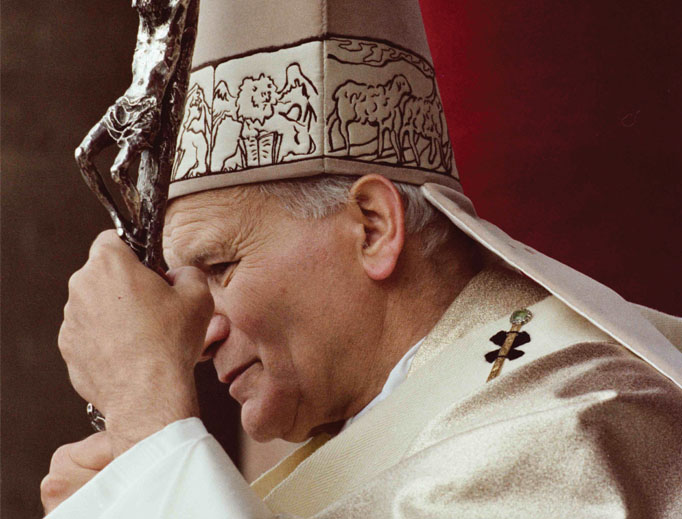MESSAGE OF JOHN PAUL II
TO THE BISHOP OF ALBANO
FOR THE CENTENARY OF THE DEATH
OF ST. MARIA GORETTI
To my Venerable Brother Bishop Agostino Vallini of Albano
1. A hundred years ago, on 6 July 1902, Maria Goretti died in the hospital at Nettuno, brutally stabbed the day before in the little village of Le Ferriere, in the Pontine Marshes. Her spiritual life, the strength of her faith, her ability to forgive her murderer have placed her among the best-loved saints of the 20th century. Appropriately, therefore, the Congregation of the Passion (C.P.), entrusted with the care of the shrine where the saint’s remains repose, wanted to celebrate the anniversary with special solemnity.
St Maria Goretti was a girl whom God’s Spirit endowed with the courage to stay faithful to her Christian vocation even to the point of making the supreme sacrifice of her life. Her tender age, her lack of education and the poverty of the environment in which she lived did not prevent grace from working its miracles in her. Indeed, it was precisely in these conditions that God’s special love for the lowly appeared. We are reminded of the words with which Jesus blesses the heavenly Father for revealing himself to children and the simple, rather than to the wise and learned of the world (cf. Mt 11,25).
It was rightly observed that St Maria Goretti’s martyrdom heralded what was to be known as the century of martyrs. It was in this perspective that at the end of the Great Jubilee of the Year 2000, I stressed that “this lively sense of repentance … has not prevented us from giving glory to the Lord for what he has done in every century, and in particular during the century which we have just left behind, by granting his Church a great host of saints and martyrs” (Novo Millennio ineunte, n. 7).
2. Maria Goretti, born in Corinaldo in The Marches on 16 October 1890, was soon obliged to emigrate with her family, and after sometime they arrived at Le Ferriere di Conca in the Pontine Marshes. Despite the hardships of poverty which even prevented her from going to school, little Maria lived in a serene and united family atmosphere, enlivened by Christian faith, in which the children felt welcomed as a gift and were taught by their parents self-respect and respect for others, as well as a sense of duty based on love of God. This enabled the little girl to grow up peacefully, nourishing her simple but deep faith. The Church has always recognized the role of the family as the first and fundamental place for the sanctification of its members, starting with the children.
(To continue reading, please see here).












